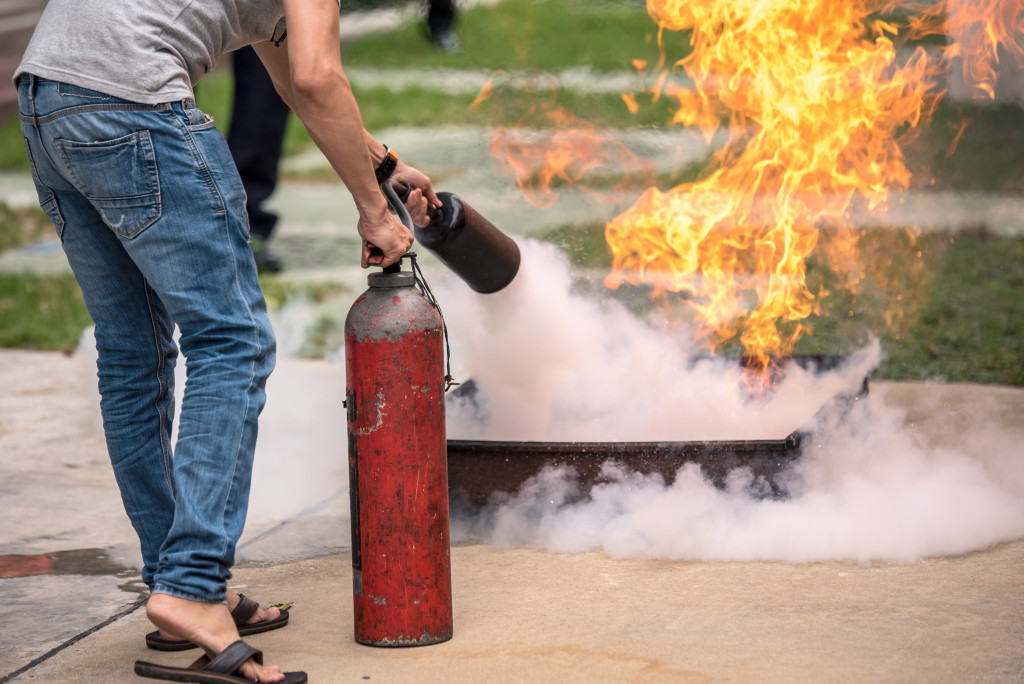- Learn basic CPR and first aid techniques to be prepared for medical emergencies.
- Be sure to understand and practice water safety rules to prevent accidents.
- Have a fire safety plan in place and conduct regular fire drills.
- Know basic self-defense techniques to protect yourself and your family from any threat of violence.
- Maintain car fluids, tires, wipers, and filters to ensure the safe operation of your vehicle.
As a parent, your number one priority is the safety and well-being of your children. However, accidents can happen anytime, and being prepared for them can mean the difference between life and death. That’s why every parent needs to have basic life-saving skills. Here are some of the most important life-saving skills every parent should learn.
Basic CPR and First Aid Techniques
One of the most important skills that parents should learn is basic CPR and first aid techniques. Children are prone to accidents, and knowing how to administer basic first aid and CPR can be the difference between life and death.
You can take a CPR and first aid course at your local hospital or through organizations. If you want to be more prepared, you may opt to get an EMT certification. This requires you to take more in-depth training, usually including an exam. Having an EMT certification can be a valuable asset during any medical emergency.
Water safety

Another critical skill every parent should learn is water safety. Drowning is one of the leading causes of death for young children, and knowing about water safety can help prevent accidents. Be sure to learn basic safety rules when swimming, such as never leaving a child unattended near a pool or beach and always ensuring that children wear appropriate safety gear such as life jackets.
Fire Safety
Fires can happen at any time and can be extremely dangerous. As a parent, understanding basic fire safety techniques can help protect your family from harm. Learn ways to prevent fires, such as not leaving candles unattended or never leaving cooking food alone.
Additionally, have a fire safety plan in place and conduct regular fire drills to ensure everyone knows what to do in an emergency. This could include having a designated meeting place and safe exit routes.
Self-Defense
While no one likes to think about the possibility of violence, parents need to know basic self-defense techniques. These techniques can help protect yourself and your children if you are ever in a dangerous situation. Consider taking a self-defense course or learning basic techniques at home, such as striking vulnerable areas of an attacker or using your voice to alert others for help.
If possible, practice what you learn with your family and discuss how to respond if faced with a violent situation. This can help you and your family stay safe in a threatening situation.
Basic Car Maintenance
Knowing basic car maintenance skills can be a lifesaver in an emergency. Whether you are a first-time driver or have been on the road for years, it is essential to have regular car maintenance checks to ensure the safe operation of your vehicle.
Check your car’s fluids regularly

Keeping your car’s fluids at the correct levels is crucial to its performance. Engine oil, transmission fluid, brake fluid, and coolant are essential fluids that should be checked regularly. You can check them yourself or take your car to a mechanic for a quick inspection. Be sure to follow the manufacturer’s manual for recommended service intervals. Car fluids should be changed every few months to ensure their efficiency.
Change your car’s oil
Regular oil changes are essential to keep your car running smoothly. Over time, oil becomes contaminated with dirt, debris, and engine residue, which can cause damage to your engine. Changing your oil every three to six months can help prevent engine damage and prolong your car’s life.
Maintain your car’s tires
Tire pressure and alignment are essential aspects of car maintenance. Over time, tires can become worn down, punctured, or develop cracks. Be sure to rotate your tires every six months to ensure even wear. Check your tire pressure regularly to prevent under or over-inflation. Proper tire maintenance can improve traction, handling, and fuel efficiency.
Replace wipers and filters
Windshield wipers and filters should be replaced regularly to maintain visibility and air quality in your car. Wiper blades can become worn or cracked over time, reducing their effectiveness. Cabin air filters should be replaced every 12 months to prevent dirt and dust from entering the air conditioning system. Replacing these components can help improve your car’s safety and comfort.
Final Thoughts
As a parent, knowing basic life-saving skills is essential for keeping your children safe from accidents and emergencies. Learning skills such as CPR and first aid, water safety, fire safety, self-defense, and essential car maintenance can help ensure you are prepared for any situation. Remember to practice these skills regularly and keep emergency kits and plans on hand in case of any emergency. Being prepared can give you peace of mind and even save someone’s life.



















